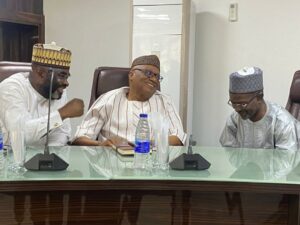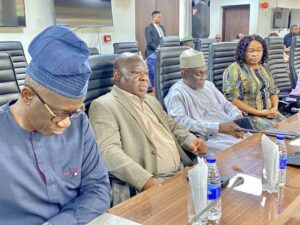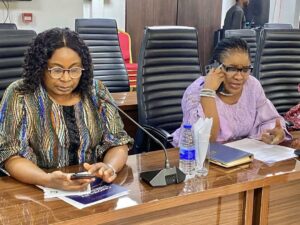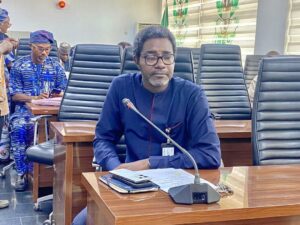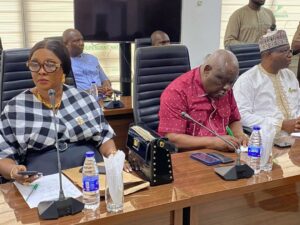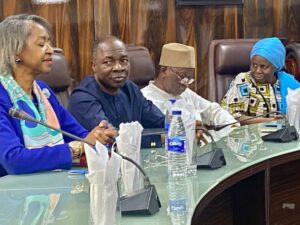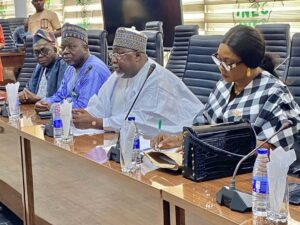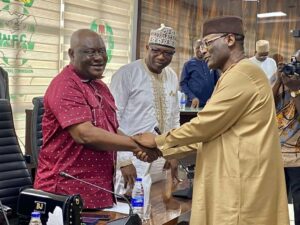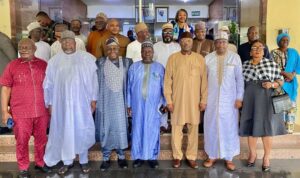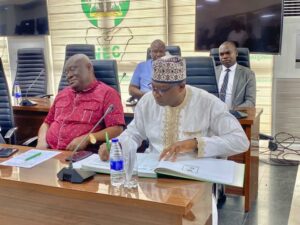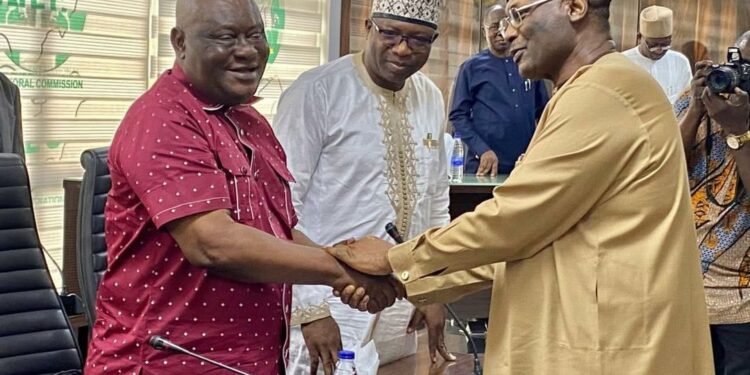Chairman of the Independent National Electoral Commission (INEC), Prof. Mahmood Yakubu, has called on the Forum of State Independent Electoral Commissions of Nigeria (FOSIECON) to improve the credibility of local government area elections across the country, urging them to emulate the standards applied by INEC in the conduct of the Federal Capital Territory (FCT) Area Council elections.
Prof. Yakubu made the appeal on Thursday, July 31, during a courtesy visit by a delegation of FOSIECON led by its chairman, Hon. Mamman Nda Eri, at INEC headquarters in Abuja.
According to the INEC chairman, while he was pleased that virtually all states now have elected local government councils, he expressed concern over the quality and credibility of the elections that produced them.
“Your role is significant to credible elections in Nigeria,” Yakubu stated. “Local government elections, just like local government areas, are the foundation not only of credible elections, but also of development. I am glad to note that virtually all the States of the Federation now have elected local government councils. But you will agree with me that the challenge is the quality of the elections.”
He emphasised the need for State Independent Electoral Commissions (SIECs) to uphold electoral standards comparable to those used by INEC.
“The best cooperation that can exist between INEC and the SIECs is for the SIECs to strive to conduct local government elections in the manner that INEC has done in the FCT,” he said.
Highlighting the credibility of the FCT elections, Yakubu noted that, “no one party has ever won all the elections in the FCT,” and that elections have always been conducted regularly without recourse to caretaker committees. He pointed out that the FCT’s adherence to statutory timelines has helped strengthen public trust in the process.
“As you know, the FCT is the only part of the country where there has never been a caretaker committee in the six area councils. Elections are held regularly. Initially, the tenure was three years, but with the Electoral Act amendment, it is now four years, just like other executive and legislative positions,” he explained.
He also warned against the violation of official timelines for conducting elections, referencing a recent Supreme Court judgement that nullified a local government poll in Rivers State for failing to adhere to due process.
“Conducting local government elections without serving the mandatory statutory notice long before the election contravenes the judgment of the Supreme Court,” he warned.
Yakubu criticised a recent announcement by a state electoral commission that effectively gave just 21-days notice before the election, calling it “a violation of the law” and “a practical problem.”
“Within 21 days, how do you expect political parties to conduct primaries, nominate candidates, organise a campaign, and for the Electoral Commission to conduct voter education, recruit and train ad hoc staff, manage logistics, and organise security for the election? It is practically impossible.”
He urged FOSIECON to deliver this message to all member commissions and ensure strict compliance with statutory provisions.
Responding, FOSIECON Chairman Hon. Mamman Nda Eri explained that the visit was aimed at formally introducing the newly inaugurated national executive of the forum and strengthening its relationship with INEC. He appealed for technical assistance, capacity building, and knowledge-sharing between INEC and the state electoral bodies.
He acknowledged the disparity between state electoral laws and national regulations, especially in light of the Supreme Court ruling, which mandates a 360-day notice before local government elections, a timeline many state laws currently do not observe.
“It is clear that most of the states have their laws that have been enacted and passed by the Houses of Assembly,” Eri noted. “The fact remains that most of us have this issue of 90-day notice for election. From all indications, one of the things that the Supreme Court judgment hammered on is the issue of 360 days.”
He also raised concerns about financial constraints affecting the performance of SIECs, arguing that the rigorous procedures required to conduct credible elections come at a cost many states are not equipped to bear.
“When we talk of logistics, most of the states are not financially independent,” he said. “If, through knowledge sharing, our parent body—INEC—can pull their weight to see that financial autonomy is granted to SIECs, I believe a lot of things will change.”
More Photos Below:
